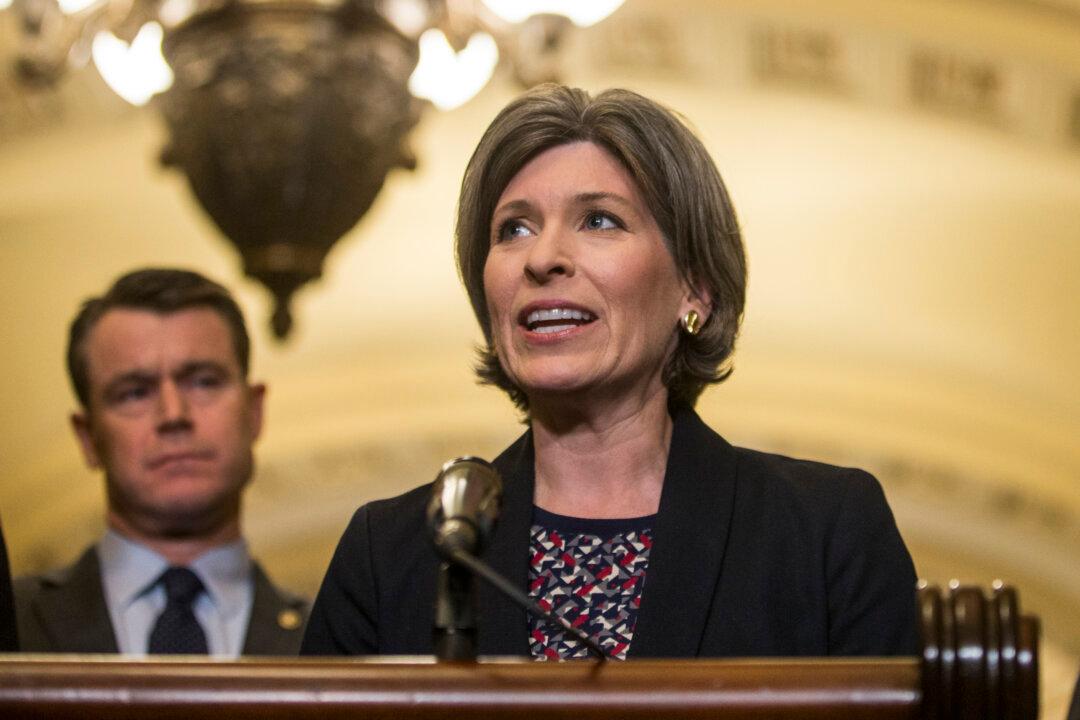WASHINGTON—Moving federal departments and agencies out of the nation’s capital is a perennial proposal that comes and goes without raising much notice, but President Donald Trump is acting on the idea and an Iowa senator wants to help him speed it up.
Sen. Joni Ernst (R-Iowa) also wants to see that bureaucrats are held accountable for the bonuses they award.





